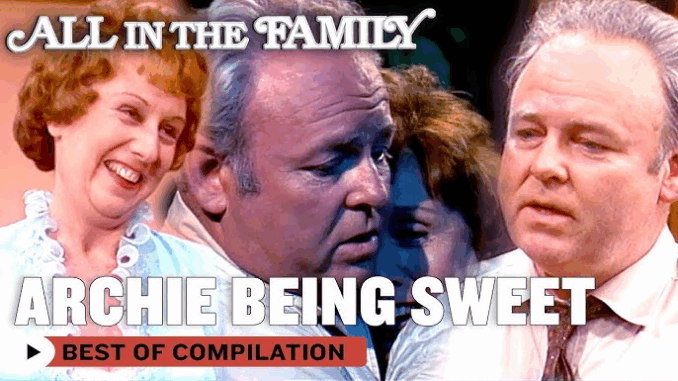
Behind the laughter, the applause, and the unforgettable one-liners, All in the Family was hiding a powder keg of real-life tension, explosive politics, and behind-the-scenes turmoil. As one of the most influential—and controversial—TV shows in American history, the story of All in the Family is as gripping off-screen as it was on.
What viewers didn’t see was the backstage battles that nearly tore the cast apart. Carroll O’Connor, who immortalized the role of Archie Bunker, often clashed with producers over the script’s increasingly daring direction. At one point, O’Connor walked off set for two full weeks, threatening to quit unless he was given more creative control.
Then there was Jean Stapleton—beloved by millions as the kind-hearted Edith Bunker—who secretly struggled with the way her character was written. “I didn’t want to play dumb,” she later revealed. “I wanted Edith to grow, to question, to evolve.” Her decision to leave the show in 1980 devastated fans and marked the beginning of the end.
But the drama didn’t stop there. Rob Reiner, aka “Meathead,” was a passionate liberal off-screen too—and often butted heads with the more traditional network executives. His progressive stance on Vietnam, civil rights, and feminism mirrored his character so perfectly that audiences often blurred the line between fiction and reality.
Despite—or perhaps because of—these tensions, All in the Family became a cultural phenomenon. It earned 22 Emmy Awards, broke ratings records, and permanently shifted the landscape of television. No longer was TV just about escapism—it was about confronting reality.
And the show’s influence didn’t end when the credits rolled. Decades later, themes explored in All in the Family—systemic racism, political division, generational conflict—still dominate national headlines. In 2019, ABC aired a live reboot starring Woody Harrelson and Marisa Tomei, proving that Archie Bunker’s world is anything but outdated.
So what’s the legacy of All in the Family? A fearless TV experiment that refused to play it safe. A cultural lightning rod. A show that made America laugh—and forced it to look in the mirror.